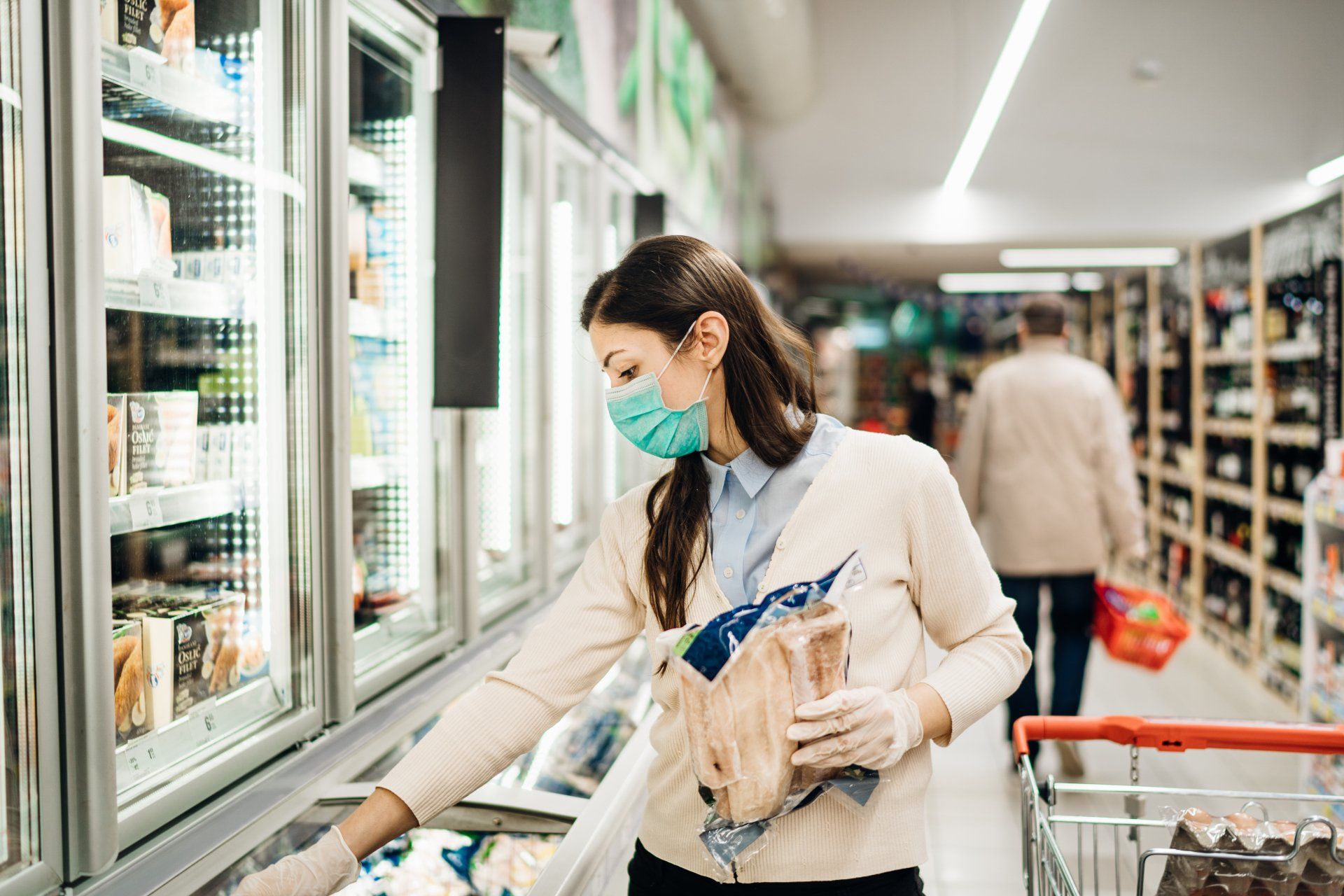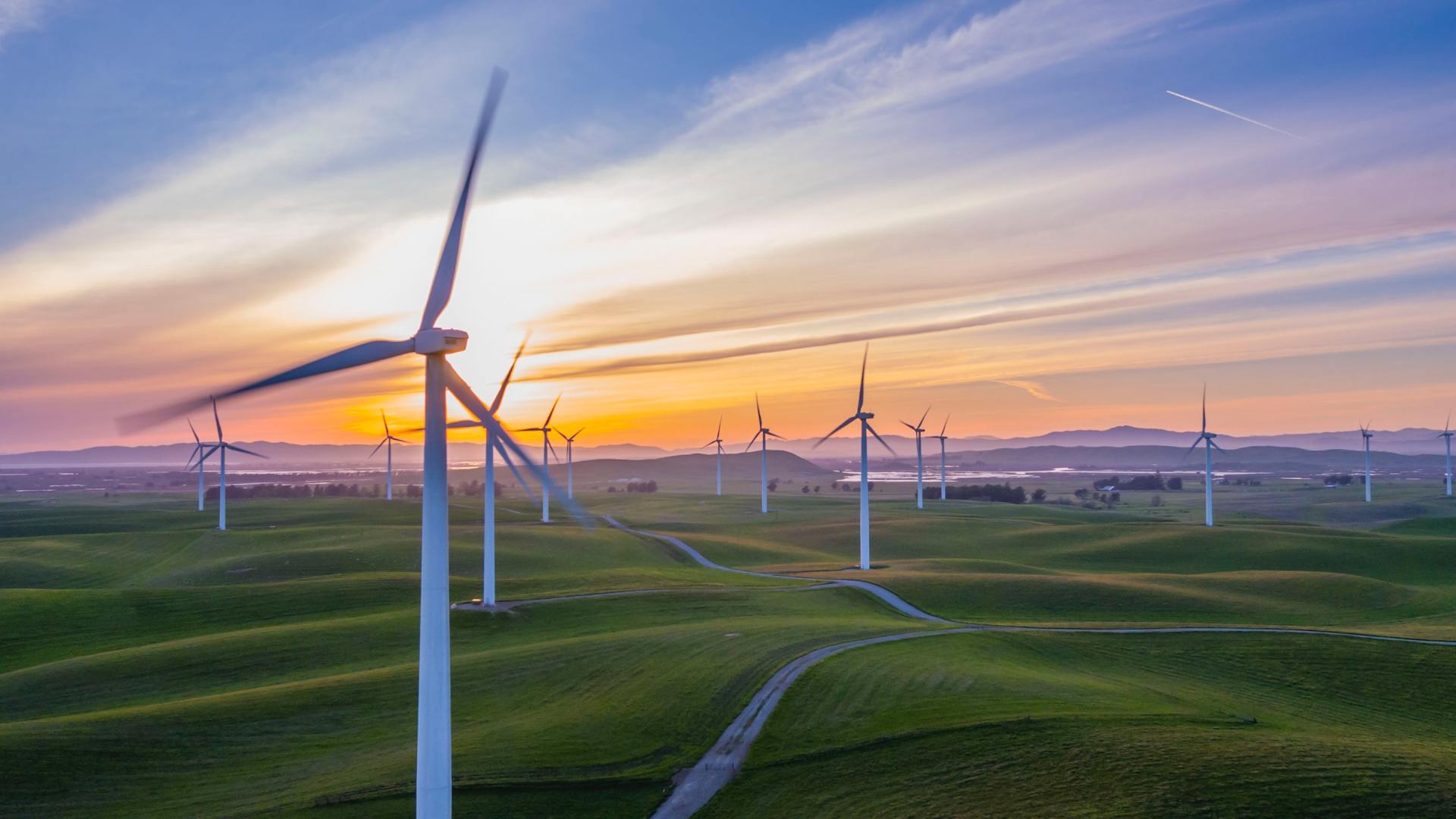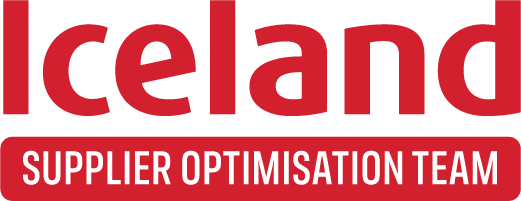Blog Layout
Grocery shopping in 2021 - What will it look like?
Stuart Tiedeman | 21 January 2021
Industry Insights / Grocery shopping in 2021 - What will it look like?
In the last year it has become clear that grocery shopping will have long-lasting effect in our daily lives. After retailers learned how to deal with the COVID-19 crisis, many changes were made in order to adapt to restrictions and regulations put in place to be able to keep trading safely. More than ever, people are going online to buy their groceries.

In 2021, the pandemic is still prevalent as well as the end of the Brexit transition period, adding more pressure to the UK economy. Brexit and the pandemic have prompted consumers to spend more cautiously, looking for alternatives to fill their needs. Iceland Foods has helped customers during these difficult times in many ways. We will look at the reason behind shopper shifts towards Iceland and how the retailer has made a real impact during 2020. We will discuss the continuous adaption and adjustments the retailer is making to keep up with demand, ethics and affordability.
Economic consequences of COVID-19
According to the Resolution Foundation, 54% of adults in families who fell under the ‘lowest paid’ category took greater loans from March to June to pay for everyday items, such as food and housing. The survey conducted found that working age adults in the UK were affected greatly by the coronavirus crisis, which has been detrimental to many jobs, incomes and living situations, especially those in the lowest income bracket. Families had less money to spend, and as a consequence, are looking at alternative ways to meet their needs. Shoppers have increased the purchase of frozen food, as it is more affordable and lasts longer. This has benefited Iceland, as the frozen food retailer increased by 22%, making £1.7 billion from April to September 2020.
How have shopper behaviours shifted toward Iceland?
Iceland is a UK leader in frozen food, running over 950 stores across the country. Their online shopping service has won multiple awards. They have a 20+ year reputation for being a family-friendly, cheap and cheerful store for weekly shopping that meets the daily needs for fresh, chilled, frozen food and groceries.
There are different ways
Iceland has been able to help customers during this difficult time. One of the services include home delivery of in-store purchases over £25.
Selling quality food at an affordable price is a priority for the retailer.
They have also taken part in the Healthy Start Voucher initiative, providing individuals and families with free frozen vegetables in its stores across England, Wales and Northern Ireland, which is available until the end March. In Scotland, the same offer falls under Best Start Foods card. By participating in this initiative, Iceland can offer families with nutritious food at a good value.
Iceland’s sustainability and ethics
Consumers have become increasingly more concerned about sustainable living and ethical practices, according to UK Food Trend Report in 2019. The report showed that 75% of 1,000 UK shoppers surveyed, would like to see supermarkets providing only ethical and sustainable groceries
in their shops.
Iceland has taken these concerns into consideration, working hard to live up to the principles of becoming more sustainable and sourcing ethical products. In January 2020, Iceland was the first store in the UK to launch a trial to reduce up to 93% of plastic packaging. This gave shoppers options in buying 38 different fruit of vegetables plastic-free or reduced plastic content packaging. In response of consumer awareness, this trial is expected to reduce seven tonnes of plastic. It is important to add that Iceland was the first retailer to commit to remove plastic by 2023 on its own label.
In May 2020, Iceland announced food waste had been reduced by up to 2,500 tonnes
by distributing surplus food given to store colleagues in around 1,000 stores, donating it to local communities, and converting it into animal feed. Through community networks, 157.8 tonnes of surplus food was given to people in need under other initiatives.
Iceland reduced their food waste by up to 2,000 tonnes in 2020.
Iceland is taking extra steps, not only reducing carbon from operations, but inviting the government and other businesses to join forces in taking action in the face of the climate and environmental crisis we are all living in.
Another important achievement was the commitment to remove palm oil
from their own label products. Palm oil is one of the main causes of deforestation and a driver for extinction in species such as the orangutan. While some non-Iceland products might contain palm oil, they prefer other supply chains to have more sustainable sources, stopping further deforestation.
Adjusting to shopper changes
While 2020 has proven to be a challenging year, Iceland is committed in creating and supporting plans to increase their environmental responsibility as well as helping their shoppers through the pandemic. This has been done by continuously caring, not only about their customers’ financial needs, but also offering them the best quality products. Iceland’s goal to become a carbon neutral business by 2023 has displayed that they are concerned about the planet, and are falling in line with the increasing changes in the ethics of shoppers. The retailer has proven that it is possible to keep profits high while helping their customers, the community and the environment.
Interested in implementing a campaign to reach Iceland shoppers? Request a proposal
or send an email to hello@IcelandMedia.co.uk.

by Rachael McMahon
•
30 March 2021
Living Sustainably- The Facts In 2019, the Intergovernmental Panel on Climate Change (IPCC) , reported how a temperature rise of 1.5 degrees Celsius will negatively impact the world. Supporting the beef industry contributes to climate change ; the production of meat, dairy, and immense water usage to grow food for the animals are all factors that lead to a high carbon footprint. Making improvements on food production, transforming eating habits and reducing food waste can help fight climate change. These adjustments need to come from governments and societies soon, as the impacts on the planet will soon be irreversible. The pandemic and time in lockdown have caused many to rethink their relationship with food. Restrictions of movement and fear caused food security worries and fuelled a new passion for home cooking. Lockdown has even influenced people to increase their vegetable consumption. The Next Generation’s Priorities In order to understand the impacts of the pandemic, Strategy& PwC surveyed a total of 2,000 adults about their ever-changing eating habits and shopping behaviours. About 15% (one in six shoppers) stated that health was the most important driver for their diet change, followed by ethics, sustainability, and animals. 22% of Generation Z and Millennials (18–34 years) were more likely to change their habits for environmental and ethical reasons, in comparison to only 10% of participants aged 55 and over. As younger generations are changing their habits, the retail industry needs to adapt to new consumer and environmental demands. Carbon Emissions Reduction The social economic disruption, lockdowns, and work from home situations have led to global greenhouse gas emission reduction of nearly 2.4 billion , a 7% drop from 2019. While these emissions are predicted to rebound in 2021, governments are encouraged to prioritise policies that tackle climate change in their upcoming economic recovery plans. More adults grew conscious about the environment in lockdown, as seen in a study commissioned by the global hygiene and health company, Essity . During lockdown, 81% of adults stated that they worried more about the planet’s future. A further 50% of these adults have converted these concerns into actions by buying less plastic, recycling more often, and taking shorter showers. Going Vegan and Buying Sustainable Products The Veganuary concept started in 2014 in York, encouraging people to follow a vegan lifestyle for the month of January. The number of participants has doubled since 2019; 500,000 people signed up to participate in Veganuary this year, with 125,000 participants from the UK . Iceland was one of the British supermarkets to participate in this challenge, promoting the many benefits of a plant-based diet. Awareness surrounding health and ethics has increased during the COVID-19 crisis, as restrictions do not allow people to travel long distances to shop. People have realised the importance of health, exercise and well-being. A survey of 3,000 shoppers conducted in April 2020 found that 64% of consumers focused more on limiting food waste. Half of the consumers surveyed said they were opting for healthier options, with another 45% stating that they are conscious about purchasing items that are more sustainable. Iceland are Doing IT Right Sustainability has become a major driver in consumers’ decision-making processes. Supermarkets and brands have recognised the acceleration of environmental awareness and are working to meet their consumers’ needs and expectations. The Doing it Right campaign is at the heart of sustainability. Iceland supports the UN’s Sustainable Development Goals (SDG), following the five principles: • Caring for the planet by enhancing the global environment through leading initiatives • Supporting the communities by paying taxes and through their Charitable Foundation • Selling quality food at a great value • Working with suppliers to build mutually beneficial long-term partnerships • Valuing our people as family business Iceland’s focus is to wipe out poverty, fight inequality and tackle climate change in the run-up to 2030. Iceland’s own label products have not contained palm oil since 2019. They have reduced their plastic packaging and plans to remove plastic packaging from their own label completely by 2023. Adding to all Iceland’s commitment of being more sustainable, Managing Director Richard Walker has written a book on how to help other businesses become more sustainable. The book ‘The Green Grocer: one man’s manifesto for corporate activism’, discusses how it is possible to be successful in sustainable initiatives while being pragmatic about profit and staying committed to customers and employees. The Iceland Media team provides Iceland Suppliers with a full range of media opportunities that influence Iceland customers, and help brands grow by drawing attention to their environmental and socially responsible products and brand values. Interested in booking a campaign in Iceland stores or online? Request a proposal or send an email to hello@icelandmedia.co.uk .

by Iceland
•
21 March 2021
Richard Walker, Managing Director of Iceland Foods will share his unique approach to leading a sustainable business agenda in a new book, which will be published in April. The Green Grocer sets out Richard’s learnings since he embarked on Iceland’s ‘Doing it Right’ plan in 2017 and his practical advice for business of all sizes that want to make a positive difference.
Powerful media inventory to amplify your existing JBPs...
Create a campaign brief and we'll respond within 24 hours with a recommendation & commercial proposal...
CONTACT US
Iceland Supplier Optimisation Team
(provided by rmi)
7 Bell Yard
Strand
London
WC2A 2JR
(provided by rmi)
7 Bell Yard
Strand
London
WC2A 2JR
020 8962 2300
hello@IcelandMedia.co.uk
USEFUL LINKS
STAY INFORMED
Subscribe
Thank you for contacting us.
We will get back to you as soon as possible
We will get back to you as soon as possible
Oops, there was an error sending your message.
Please try again later
Please try again later

